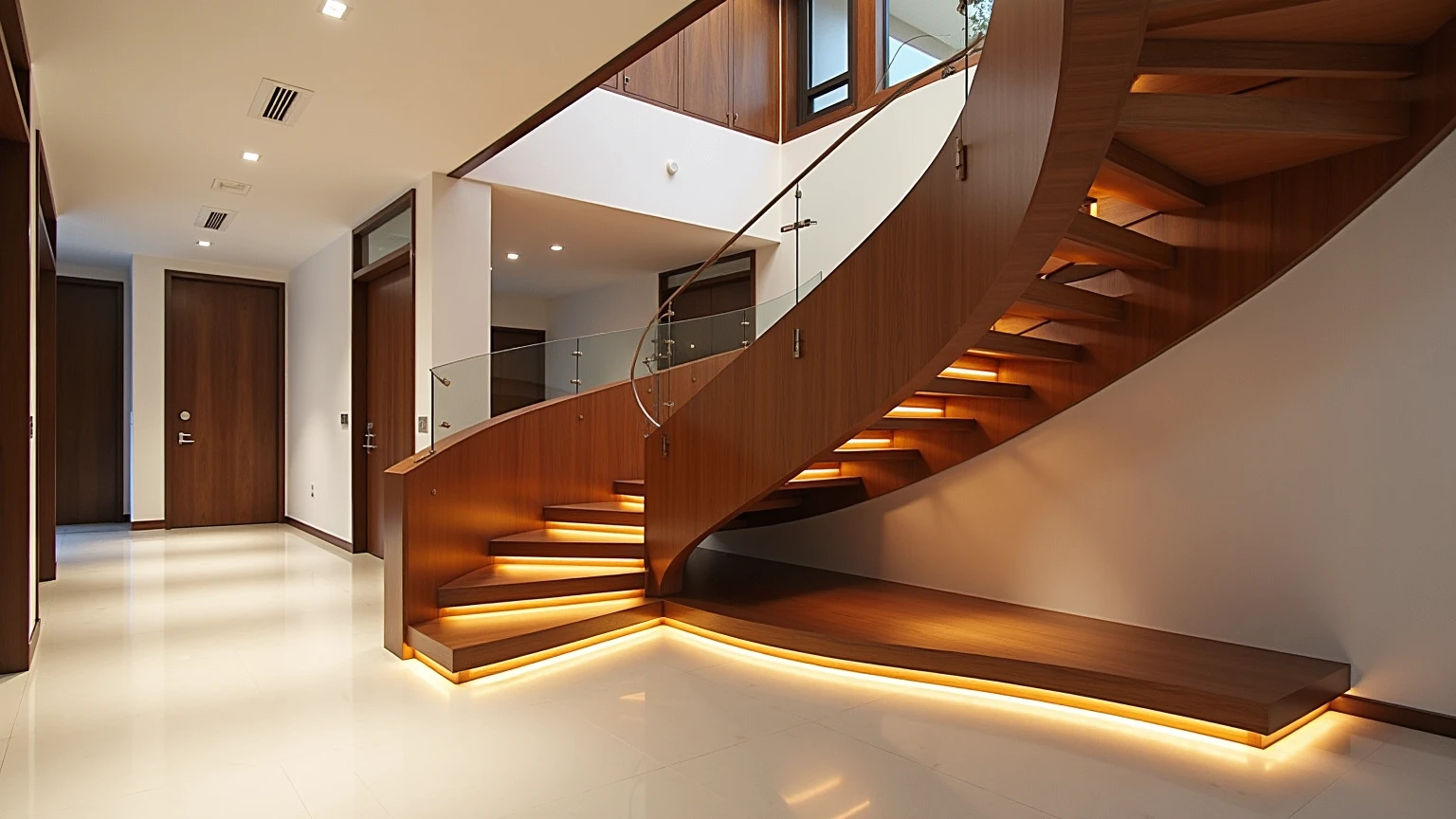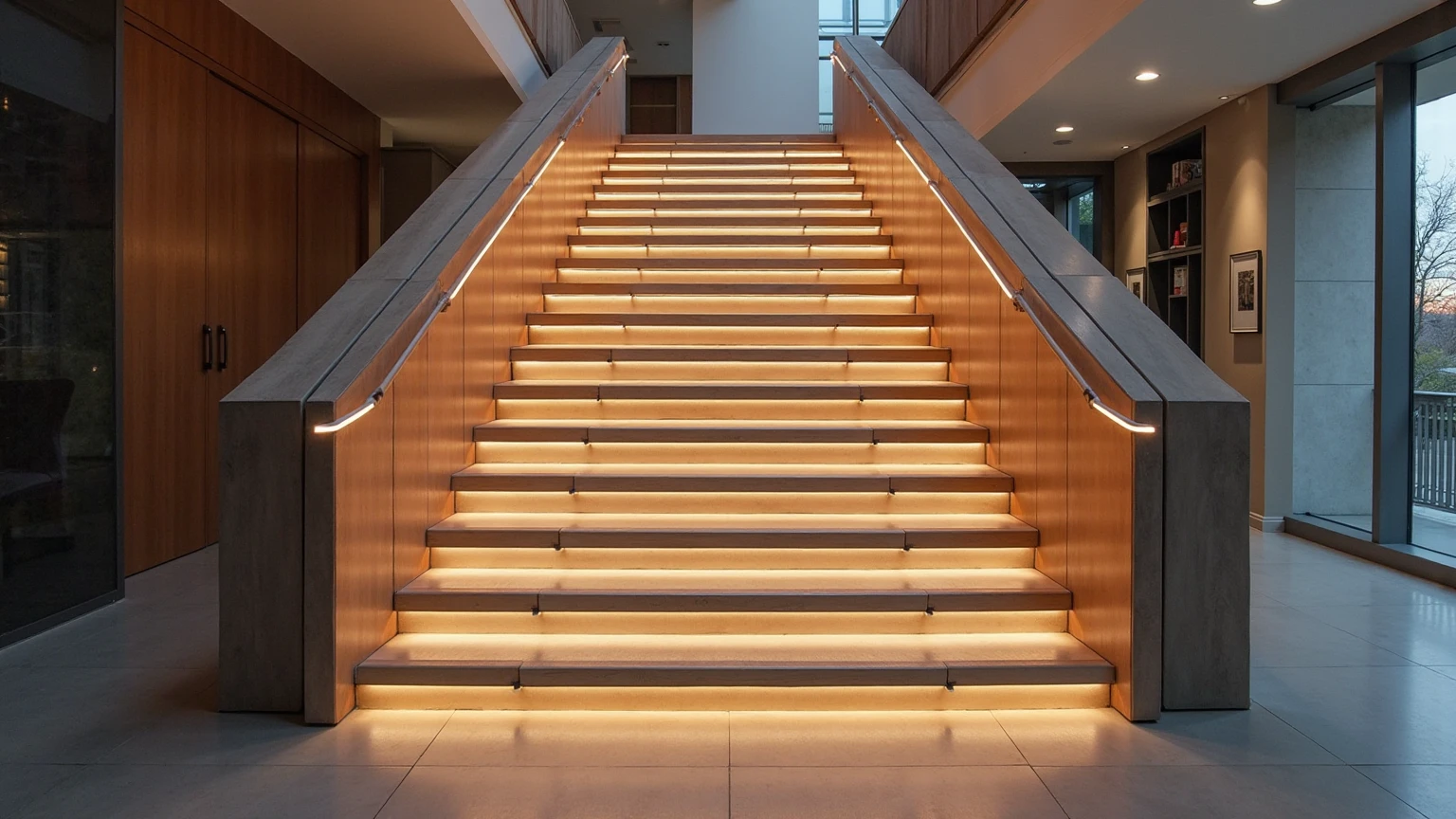Stair Corporation's custom stair designs are meticulously crafted to meet the diverse needs of both residential and commercial projects. Their designs blend stylistic variations with functionality, catering to varying aesthetic and practical requirements. For instance, in a high-end residential project, Stair Corporation created a sleek spiral staircase that enhanced the living space's visual appeal. In contrast, a commercial project required robust yet stylish stairways to manage heavy foot traffic, showcasing their adaptability and design prowess. Understanding the specific needs of clients, be it for a cozy home or a busy office, ensures that each project is tailored to enhance user experience and satisfaction. Through a thoughtful design process, Stair Corporation adapts to client requirements, creating stair solutions that are not only functional but also an integral part of the space's identity.

Stair Corporation's commitment to durability is evident in their use of premium materials such as hardwood, metal, and composite materials. These materials are selected not just for their aesthetic appeal but also for their ability to withstand the test of time. Rigorous testing for durability and longevity ensures that the staircases meet and often exceed industry standards, providing peace of mind to clients. Choosing high-quality materials may seem costly initially, but it proves economical in the long run as it reduces the frequency of replacements and maintenance. Investing in superior materials translates to fewer disruptions and expenses over the staircase's life cycle, making it a wise financial choice for both residential and commercial clients.
Stair Corporation values a collaborative approach in every custom stair project, ensuring successful outcomes through teamwork. This process involves close collaboration between clients, architects, and the company's design team to create staircases that truly reflect the client's vision. The importance of feedback loops during the design stages cannot be overstated, as they ensure that the final product meets all functional and aesthetic requirements. Satisfied clients often highlight this collaborative effort in testimonials, noting how their input was valued and how it led to a staircase solution that exceeded their expectations. By fostering strong partnerships, Stair Corporation enhances client satisfaction and delivers projects that are as unique as the individuals who commission them.
Advancements in smart technology have significantly impacted stair systems, integrating IoT applications to enhance both safety and functionality. With innovations such as automated lighting and sensor systems, stairs have become smarter and more user-friendly. These systems, by illuminating steps in low-light conditions and detecting obstacles, reduce the likelihood of accidental falls. According to recent statistics, buildings incorporating these technologies have seen a reduction in stair-related accidents by up to 30%. Enhanced usability and safety offered by smart stair technology make it a cornerstone of modern construction, ensuring peace of mind for both residential and commercial users.
Stair Corporation has implemented specific safety protocols designed to cater to the needs of older adults, acknowledging the importance of secure mobility for aging populations. These protocols adhere to reputable standards, ensuring that every step taken meets the industry's strictest safety requirements. For instance, the incorporation of wider steps and sturdier handrails reflects a commitment to reducing fall risks, a significant concern for seniors. Statistics reveal that approximately 20% of aging adults face mobility challenges, underscoring the relevance of these safety features. The corporation's dedication to supporting safe environments for elderly users strengthens its position as a trusted leader in stair safety.
ADA compliance is crucial in ensuring stair systems are accessible to individuals with disabilities, promoting inclusivity in architectural design. Compliance involves design elements such as consistent handrails, proper slope angles, and appropriate landing sizes, which make it easier for everyone to navigate stairs safely. These features are not just about meeting legal standards but also about fostering equality and access in public and private settings. Advocacy groups consistently emphasize the importance of universal accessibility, and by adhering to ADA standards, Stair Corporation reinforces its dedication to enhancing user experience across diverse populations.

The stair solutions market is experiencing significant growth due to increasing demand from the aging population. With demographic shifts highlighting a need for safer and more accessible home designs, Stair Corporation is leading the way by offering products specifically tailored to meet these needs. Their product range includes stair lifts and customized stair safety features that cater to the mobility challenges faced by older adults. Recent market research supports this trend, citing a compound annual growth rate (CAGR) of approximately 3.69% for stair lifts, driven by the growing prevalence of disabilities and technological advances in the industry.
Strategic partnerships with healthcare and senior living facilities have bolstered Stair Corporation's ability to deliver innovative and safe stair designs. These collaborations have provided invaluable insights into the specific needs of aging residents, enabling the company to tailor their offerings more effectively. The outcome of these partnerships is evident in the successful integration of advanced safety features and ergonomic design principles, which have not only enhanced the product lineup but also reinforced Stair Corporation's position as a leader in senior living solutions. Success stories from these partnerships highlight improved safety and increased satisfaction among residents.
Regional housing trends significantly impact stair design and manufacturing strategies, prompting Stair Corporation to make crucial adaptations. The company has recognized shifts in demographic preferences and market demands, responding with innovative solutions that cater to varying architectural styles and accessibility needs. These adaptations include adjustable features and modular designs that accommodate different regional building codes and preferences. Data from real estate studies underscores the importance of these trends, indicating a growing demand for universal accessibility in housing. Stair Corporation's proactive approach ensures they remain at the forefront of meeting these evolving market needs.
Stair Corporation prides itself on eco-friendly material sourcing strategies, ensuring sustainable practices in their products. By prioritizing materials such as recycled steel and responsibly sourced wood, Stair Corporation reduces the environmental impact over the lifecycle of these materials compared to traditional alternatives. These materials are backed by certifications from environmental organizations, such as the Forest Stewardship Council (FSC) and the Responsible Steel Initiative, illustrating their commitment to green construction.
Stair Corporation employs cutting-edge energy-efficient production techniques to minimize energy consumption during manufacturing. Advanced technologies like automated precision cutting and energy-efficient lighting systems are integral to their sustainable production strategy. These practices have helped reduce energy usage by 20% compared to conventional methods, demonstrating a significant leap towards reducing energy consumption and promoting environmentally responsible manufacturing.
LEED certification, which stands for Leadership in Energy and Environmental Design, is a crucial benchmark in the construction industry for sustainable building practices. Stair Corporation’s stair solutions are designed to contribute effectively to the LEED certification goals by utilizing green materials and energy-efficient building techniques. Successful projects, such as the Green Valley Office Complex, have achieved LEED status significantly due to the incorporation of Stair Corporation’s eco-friendly stair systems, showcasing their pivotal role in advancing sustainable architecture.
What types of materials does Stair Corporation use for their staircases?
Stair Corporation uses premium materials such as hardwood, metal, and composites to ensure both durability and aesthetic appeal.
How does Stair Corporation cater to the aging population?
Stair Corporation designs stairs with wider steps, sturdier handrails, and offers stair lifts to enhance mobility and safety for aging individuals.
What is ADA compliance in stair systems?
ADA compliance involves designing stairs with consistent handrails, proper slope angles, and landing sizes to ensure accessibility for individuals with disabilities.
How does Stair Corporation contribute to sustainable building practices?
Stair Corporation sources eco-friendly materials, uses energy-efficient production techniques, and creates stair solutions that support LEED certification.